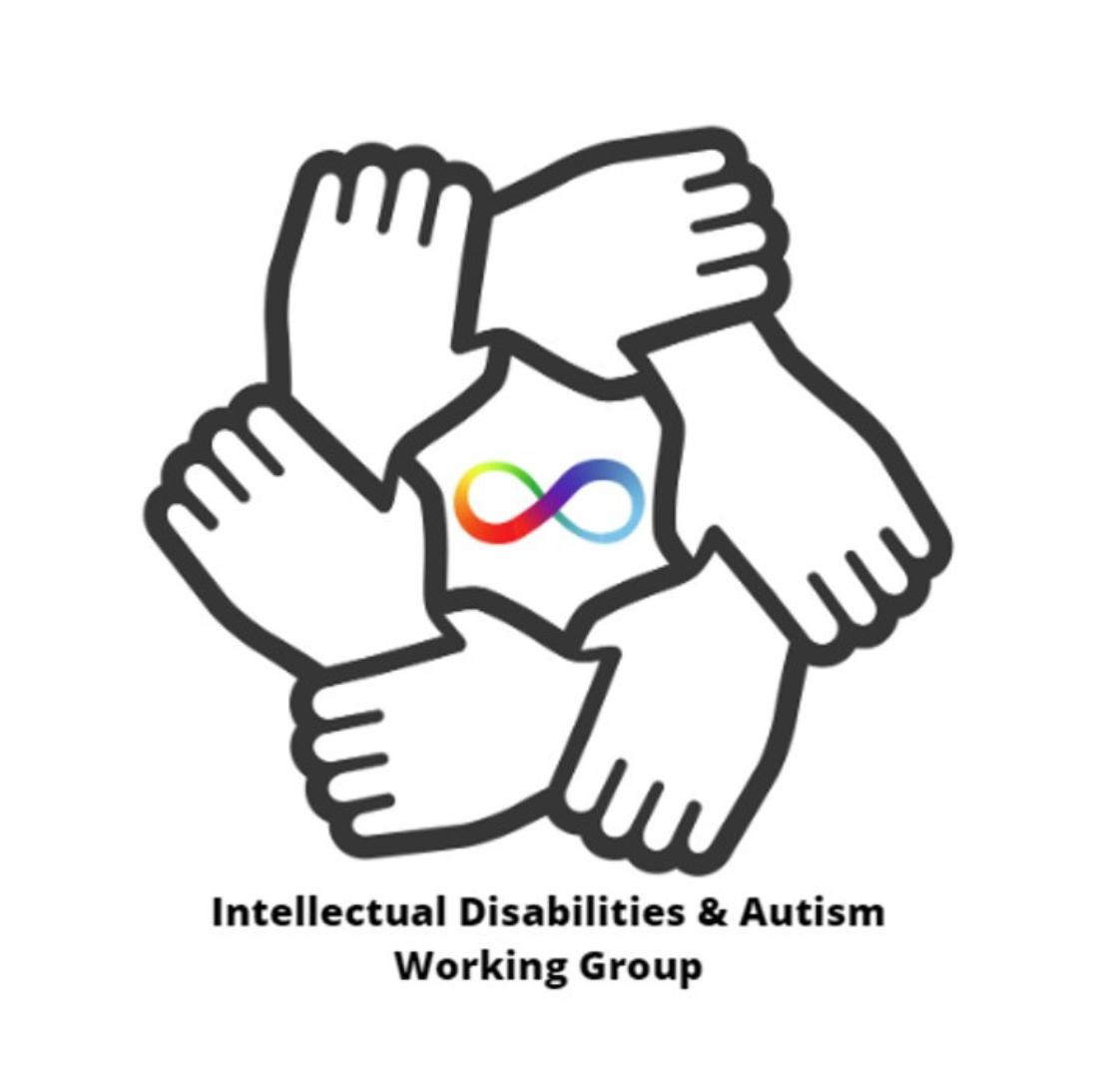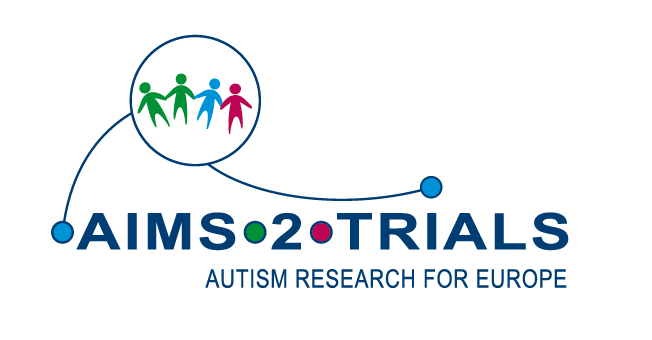A-Reps & Working Groups
Ethics
The A-Reps have been instrumental in advocating for community perspectives on the ethical implications of all projects undertaken by the AIMS-2-TRIALS consortium, providing crucial insights on how to address ethical concerns including sharing of genetic data, metrics on autistic quality of life, biomarker use, and inclusion of autistic perspectives in non-tokenistic ways across all consortium projects. This working group, currently headed up by Dr. Teresa del Bianco of London Metropolitan University, is ongoing, and continues to be a voice for the diverse needs and interests of the autism community when it comes to conducting research in an ethical manner.
Dr. del Bianco explains that the reach of this working group has extended beyond AIMS-2-TRIALS. She says, “Throughout the year, the Ethics WG provided inputs to clarify study aims for audiences beyond regulatory bodies for consortium members on two large studies, which resulted from discussions within the Ethics WG. These discussions have paved the way for identifying priorities and potential strategies for developing meaningful feedback mechanisms to autistic communities who consult researchers, as well as engage study participants effectively.”
Additionally, the members of the Ethics group have collaborated on a paper on the makeup of the consortium itself, shedding light on the neurodiversity of the researchers within the consortium and their particular needs. “From reflections on neurodiversity within the WG, the initiative of creating a neurodivergent peer support group for staff has emerged,” adds Dr. del Bianco. “These accomplishments underscore the WG’s commitment to promoting ethical research practices and advancing dialogue on neurodiversity within the research community.”


Data Sharing & Security Working Group
In the Data Sharing & Security Working Group, the A-Reps have partnered with researchers to develop ways of sharing data with consortium researchers and beyond AIMS-2-TRIALS. The focus has been on facilitating collaborative research while protecting the information that study participants have generously agreed to share. This group has been especially successful in searching for innovative ways to protect genetic data and hold researchers who use participant data accountable for meeting ethical standards for the types of research being conducted. The A-Reps have shared community concerns of importance, which helps to ensure participants receive clear information about potential risks. Additionally, the A-Reps have prioritised data security and contributed to data-sharing policies and procedures.
“The collaborative work, discussions, and inputs (i.e., on document development) in the Data Sharing Working Group have been essential for the AIMS-2-TRIALS Consortium in planning/preparing for data sharing to ensure that we can both meet our requirement from the funder of making AIMS-2-TRIALS data accessible beyond the consortium, but most importantly ensuring that this is done following the highest possible ethical standards,” notes Dr. Bethany Oakley of Kings College London. “The A-Reps have co-developed both the Consortium Principles, and the Data Access Policy, without which we would not be able to progress with this task.”
Biomarkers Working Group
The Biomarkers Working Group has provided a space for A-Reps to comment on the proposed biomarkers for autism that are most relevant to the day-to-day lives of autistic people, leading to an increased focus on sensory processing data, sleep quality, and anxiety responses as biomarkers. A-Reps have gone on to provide further feedback to researchers working in these community priority areas and helped to shape the next phases of research.
Professor Emily Jones, Birkbeck University, said, “Through working with A-Reps within the Biomarker and Ethics Working Groups, I have gained new perspectives on autism research. Conversations with the A-Reps have influenced our research directions, for example leading us to initiate a new line of research on the meaningfulness for autistic people of common outcome measures. The experience has also allowed me to reflect on the broader context of our research programme, and how the ways in which it is both communicated and conducted intersect with the views and wishes of autistic people.”
Dr. Beth Oakley notes that the working group has been especially productive when it comes to helping AIMS-2-TRIALS meet its goals around biomarker identification. She says, “Over the past two years, we have also brought the Biomarkers Working Group and the Biomarkers Steering Committee closer together – both of which include A-Rep members – to review, discuss (and at times, provide formal feedback via the Biomarker Evaluation Plan). From my perspective, this has proved very productive in providing more space and time for researchers presenting on a candidate biomarker and the A-Reps involved in this working group to meet and discuss strengths and challenges of the ongoing work, and where to focus efforts going forward to ensure that the priorities of the autistic community are reflected in the progress.”


Art & Science Exhibition
A-Reps and the team from the University of Cambridge worked together to organise an art competition and accompanying exhibition with the theme More Than Meets The Eye, looking at the ways in which science and art can come together to better showcase autistic perspectives on the world. The competition drew over 60 entries of a variety of different types of media from all across Europe, and the A-Reps were instrumental in decision making in every aspect of the competition, from the design of the website to the selection of the judges. Artwork was submitted from a wide range of media and prizes were awarded to autistic artists in both the with and without assistance categories. The competition was launched in Spring 2023 and the winners can now be seen on the exhibition website, and more information can be found on our news page.
Culture Shift Working Group
The culmination of the work done by the Culture Shift working group resulted in the publication of a paper detailing the process of building bridges between the research community and the autistic community, aiming to create an environment of successful collaboration on joint priorities. This paper examines challenges and best practices that have been observed in the course of the A-Reps existence as a group within AIMS-2-TRIALS. The Culture Shift group have worked to understand how the A-Reps have gained influence since the group’s inception, so that more such community groups can continue making gains as valued colleagues and contributors. Their paper offers a path forward to make this outcome easier in future research.
One focus of our discussions within the paper was how insights of autistic people could be brought further into non-clinical biomedical research. One important step for the field will be to think more innovatively about how to bring participatory methods into e.g. animal modelling or stem cell work.


Intellectual Disability and Autism (IDA)
Working Group
Researchers and A-Reps in the Intellectual Disability and Autism (IDA) working group have consistently led the way within the consortium as a model for respectful, positive, productive collaboration in service of joint priorities between the research and autistic communities. Among other work, the IDA working group has created resources designed to assist clinicians in creating a manageable sensory environment for study participants with intellectual disabilities, increase effective communication regarding participant needs between clinicians when participants are engaged in multiple studies, and encourage researchers to more effectively explain their research in ways that work for study participants with intellectual disabilities. These resources are available for researchers and clinicians involved in multiple studies within AIMS-2-TRIALS and beyond, and aim to improve the experience of research participants and those accessing clinical services such as MRI.
European Autism Genomics Registry (EAGER)
A-Reps have been providing input and critical feedback in the planning phases of the European Autism Genomics Registry (EAGER) since its inception. As a result of this involvement, members of this working group are credited as co-authors on a publication outlining the study protocol. A-Reps have consistently advocated for community priorities at every stage, including making sure that study documents (e.g., for participants, carers, and/or parents) are written with appropriate clarity and effectively communicate potential risks and benefits of participation. As part of this working group, researchers and A-Reps have worked to increase understanding of community issues and develop solutions which address concerns in a meaningful way.


Autistic Burnout Working Group
Led by Dr. Beth Oakley, this newest working group is in the process of developing a metric for Autistic Burnout that effectively captures both external and internal aspects of Autistic Burnout from an autistic perspective. This is the first stage in research that will examine the devastating impact that Autistic Burnout can have on quality of life, and hopefully find resiliency factors that assist in recovery. You can hear more about this work in our webinar co-presented by A-Reps.
Dr. Oakley has found her work in this group particularly meaningful. “Being involved in the autistic burnout working group, and the culminating research, is one of the highlights of my work currently,” she says. “I am really proud of this research group that is truly co-produced from inception of the group in itself, through the research process (e.g., so far, developing research ideas/priorities, co-designing measures). I value the discussions that we have each meeting, and respect and appreciate our openness with one another, and hope that I can play some role in putting these discussions into research/clinical ‘action’ over the next year (and beyond).”







